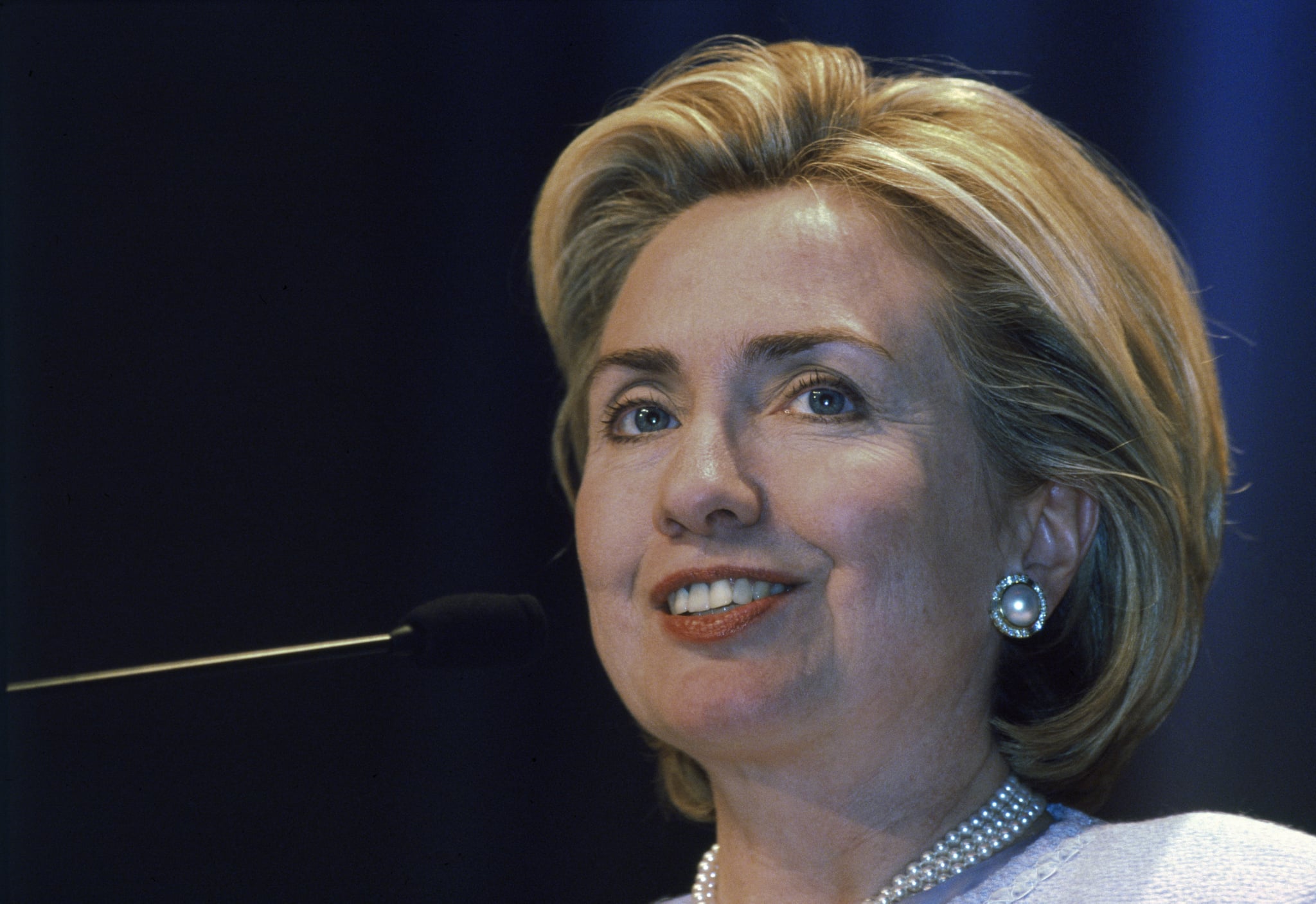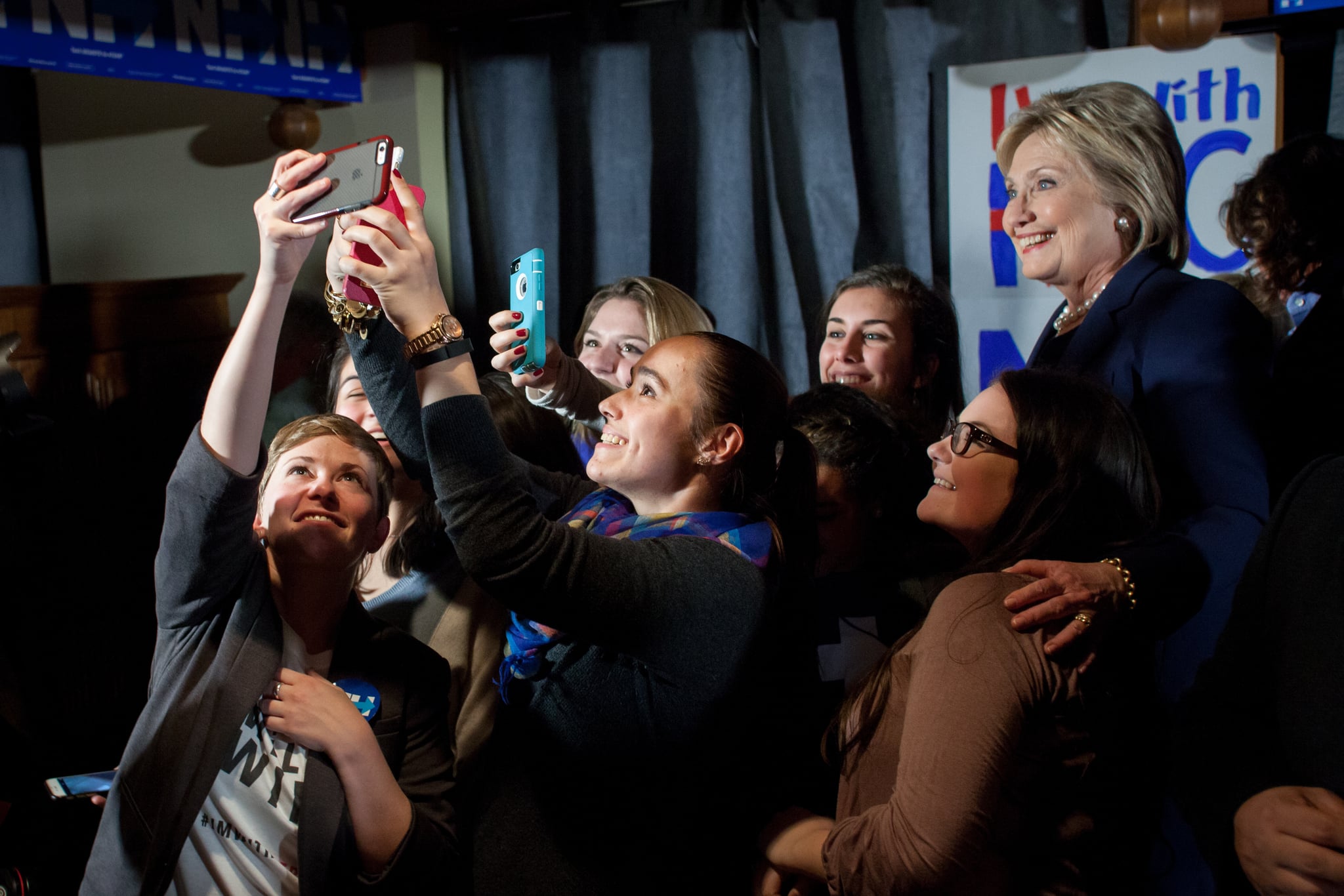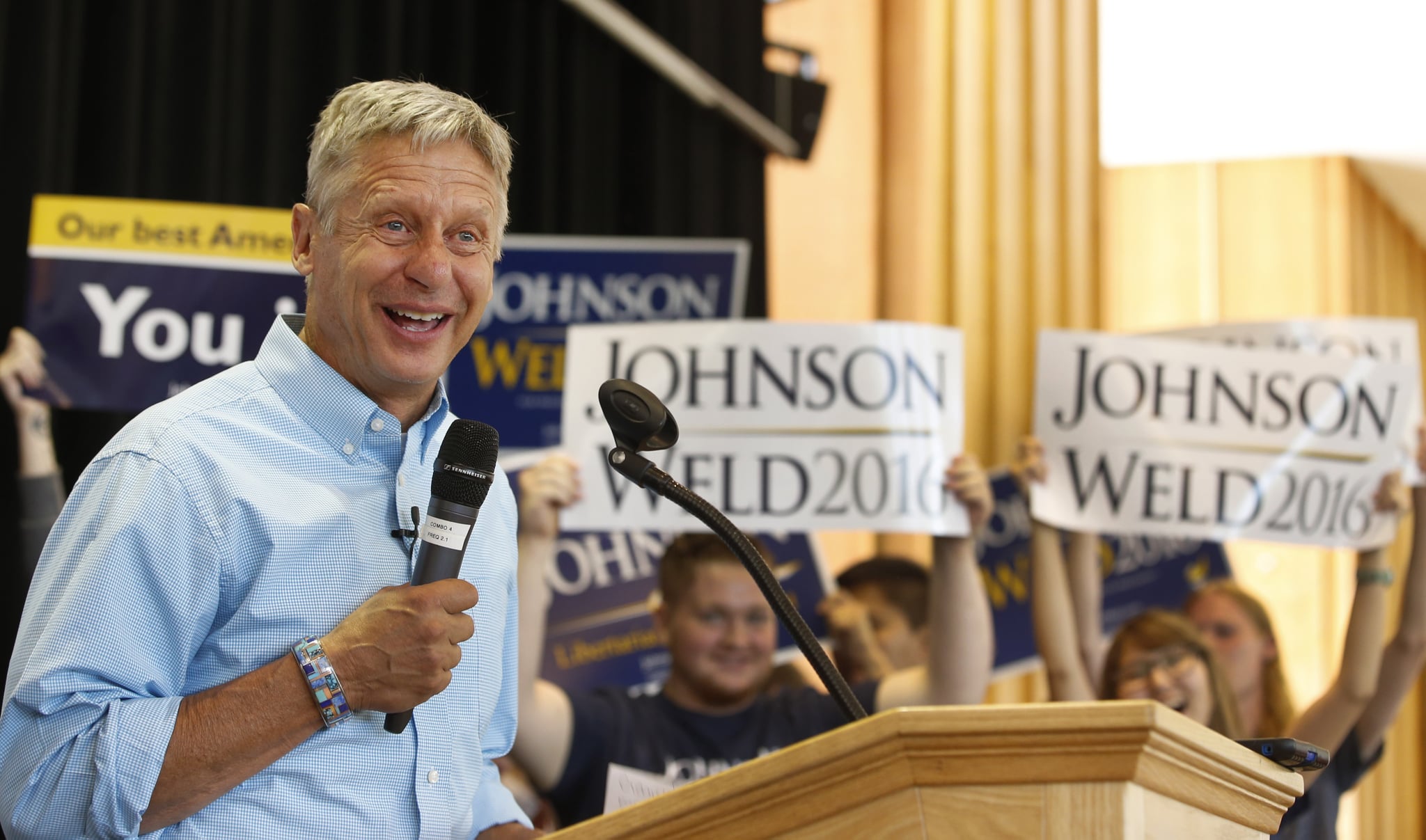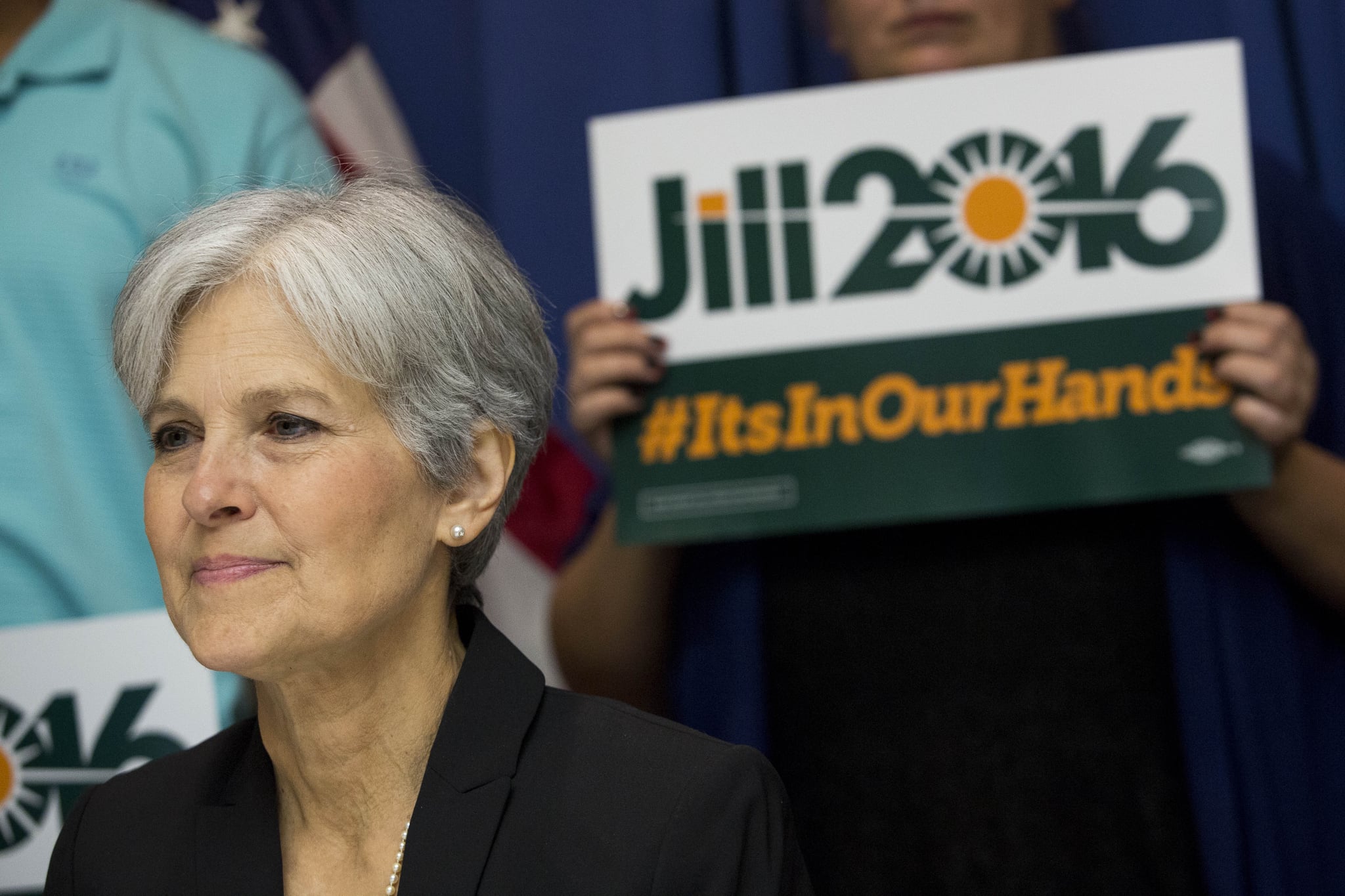This post was originally featured on Medium.
That's a pretty bold statement. And I'm going to back it up, I promise. But first, I want to talk about the economic realities facing folks in their 20s (and younger).
For members of Gen X (like me), one of our favorite pastimes is mocking millennials — lazy, entitled, everybody-gets-a-medal millennials. You've no doubt read the countless articles staging an assault on your generation. Because I work in tech and have consistently been schooled by people 20 years my junior, I tend to have a very different view. I have a great deal of admiration for my millennial colleagues. And yet, even I have been frustrated lately by the signs that millennials intend not to vote this election or to vote for one of the fundamentally preposterous third-party candidates.
"What's wrong with those kids?!" I've caught myself asking, only to catch myself being yet another 40-something with a ridiculous prejudice.
Many millennials came of age in the post-9/11 era with its ensuing economic uncertainty, only to then have the economy collapse again eight years later. My generation has lived in the shadow of the Baby Boomers, who have controlled (and to some degree continue to control) every lever of power our whole adult lives: government, business, media. Millennials have grown up in the shadow of the Boomers, the Gen X-ers AND the very real signs that we're going to hand them a burning garbage fire of a world while telling them they're lazy and entitled.
She was fighting for millennials since before many of them were even born.So, maybe we should recognize why the millennials appear to be a smidge disaffected about our current political prospects. It's particularly sensible to be unexcited about a choice between a 70-year-old Boomer conman and a 68-year-old Boomer political apparatchik. Particularly when that apparatchik was recently in a bruising primary with a member of the "Silent Generation" who actually seemed the most concerned of any candidate in recent memory with the economic realities facing millennials.
The Clinton campaign has frankly had trouble figuring out how to get past that disaffection and bring millennials on board. They've certainly tried fear tactics — and I'm all about that approach. Trump is legitimately terrifying. They've gotten cool celebrities on board. She's even taken to inviting mass selfies! And yet, current polls show a real enthusiasm problem for her among younger voters. Is it because she doesn't respect millennials? No. She did not actually call all millennials "basement dwellers," despite the Trump crowd's efforts to twist her repeating something regularly called out by the Sanders campaign — that they're the first generation to feel they'll be worse off than their parents.
I think it's because her campaign has failed to recognize (as most campaigns do) how serious and informed millennials are about economic issues — and therefore has failed to make direct economic appeals to them. And economics, I think, are worth a thousand selfies.
Her campaign's efforts sometimes remind me of one of my earliest forays into politics, volunteering for the campaign of Senator Paul Simon of Illinois. I volunteered to drive Senator Simon's wife, Jeanne, all over central Illinois while she was campaigning. I was in my early 20s. My friend in the campaign who'd set me up with the job introduced me to the Senator and told him I'd be driving his wife around. The Senator shook my hand and said, "Good for you. Congratulations on taking an interest."
I will always be a big fan of Senator Simon, but it was about the most condescending response to "this person is giving his time to your campaign" I could imagine. He looked at me and saw a kid; he was clearly surprised that a young person cared about politics. So surprised, he couldn't remember that the correct response is "Thank you."
Millennials Care About Politics and Economics
What seems to be eluding everyone campaigning this year (apart from Sanders) is that the millennials have had to be keenly aware of economic issues their entire adult lives. Not just "I'm mad as hell about the economy" aware, but "deeply studied in the subject" aware. Unlike my generation, they aresuspicious of consumer debt and have avoided it (I wish I'd been that smart in my 20s). They are, in my experience, aware of every shift in the job market. They know what their friends are up to — who's having trouble getting a job, who's doing well — because their America has been one of economic struggle more often than not.
I don't think there's ever been a younger generation better informed on the flow of capital. That's why I wish the Clinton campaign were doing a better job of talking to them on straight-forward pocketbook issues. How much more money will you have in 20 years under her plans than under Trump's? In truth, it's not even very close: her proposals for college debt relief and revisions to tax code for small businesses and working families alone would have a huge impact on someone in their 20s long-term economic prospects.
The average student loan debt service is $3,300 a year. It's impossible to say what impact her other tax plans would have for the "average" person as they're tied to having children and small businesses, but let's assume you're intending to have a child and her childcare tax credit saves you an additional $1,700 a year. I'm proposing a very modest lens into her policies, which is that you will have $5,000 more a year based on her shifting the tax burden to the wealthy and financial transactions.
You've seen the calculators: if clearing your college debt and tax relief enable you to save an additional $5,000 a year starting at the age of 25, by the time you retire at 65 it will be $14 trillion. My math might be off there (actual answer: $800,000 at a conservative interest rate), but you get the point — the power of compound interest means if we elect a candidate pledging to put more money into the pockets of younger people (as Clinton's policies will do), it will, over the coming decades have a profound impact on the lives of millennials.
Meanwhile, Trump is pledging to slash the top marginal rate, which would affect only those millennials making $415,050 or more a year. Further, he wants to slash the "death tax" for estates worth more than $10 million. So among millennials, his policies will have a very positive impact on the lives of Palmer Luckey, Zuck, and the Snapchat guy (one of whom supports Trump, one of whom doesn't, and I don't know about the third). Worse than that, Trump would actually raise taxes on middle class families. The average household of millennials will be worse off economically under Trump than Clinton.
And one must pause at this point to reflect on the greatest economic catastrophe millennials face, which is the reality of climate change. By 2050 (if not much sooner), we will be struggling with severe economic disruption due to climate change. I hope to still be around then and do what I can to help, but it is the millennials and my daughter's generation that will be leading the world. Trump denies any of this is happening or will happen. Clinton has a comprehensive plan to stem the tide. Is it radical enough? No, frankly. But it's a damn sight better than Trump, who will shred the Paris accords and further deregulate oil and gas (so will Johnson, by the way, in case you're thinking of voting for him).
The difference between the two is stark when it comes to the financial future of our youngest generations. Trump will accelerate the Gilded Age-level gap between rich and poor. Clinton will work to put more resources into the hands of young people and their families just starting out.
What About Third Parties?
It is this stark difference, by the way, that is the best argument for voting Clinton and not Stein or Johnson, in case you are so inclined.
As stated above, Johnson is worse on nearly every front economically than Trump. He would get rid of all income taxes and implement a European-style VAT of 23 percent, which would essentially eliminate taxes on people like Trump and push it all down to the rest of us. A rich person can only consume so much more stuff than the poor and middle class. In addition, he would eliminate regulation on nearly all industry and end all federal programs such as medicare and Obamacare. So, when the food you eat poisons you because industry is no longer regulated, you'll have no safety net to pay for the hospital stay. He'd be a disaster. Luckily for us, he can't win.
No, for reals. The "Johnson Dark Horse" scenario requires him to take Texas and California. No one believes he can do well in the Northeast where Clinton is popular (50 percent+) or the Southeast where Trump is similarly popular. The Johnson path to 270 Electoral Votes is that Clinton and Trump are so hated, he comes from behind and takes it. But even in states like Texas where neither Trump nor Clinton are over 50 percent, Johnson is still below 10 percent in the polls. There is no late-breaking groundswell for the Libertarians.
So, the only reason to vote for him is as a protest of Clinton's incrementalism and because you don't want to vote for Trump (or because you actually like Johnson's policies). Again, this is voting for a candidate who will do even more harm to millennials economically than Trump. It doesn't even make sense as a protest. It's like saying "I don't like Clinton's policies, and I think voting for Trump would be like eating a rancid mayonnaise sandwich, so instead I'm going to eat hot coals." Don't eat hot coals, please. The world needs you.
On the other hand, you may like Jill Stein's economic proposals, which include universal guarantees of healthcare, education, housing, child care, food and employment. You may even believe, if elected, she could get such programs through Congress. However, she also can't win. Really. Practically. She's not on the ballot in Nevada or North Carolina, meaning her only path to 270 electoral votes requires winning Florida, Ohio, or Pennsylvania (this assumes she pulls off miracles and wins the entire Northeast and West Coast and discounts the possibility of her sweeping the deep south or the Great Plains states, which don't seem inclined to vote for her admittedly Socialist policies). Stein is polling one percent in Florida and Ohio and three percent in Pennsylvania.
Millennials are, out of necessity, a pragmatic generation. Stein's not going to win, so the only reason to vote for her is to vote for her proposals on principle. That would make pragmatic sense if there really were no difference between Trump and Clinton, but economically, for millennials supportive of Stein's Federal Program-based policies, this is a choice between utter disaster and incremental progress.
If you're struggling economically and your boss offers you either a $1/hour a raise or you're fired, you don't say, "Screw you and your $1/hour a raise." You take it and you keep working to find a better job. You don't quit because your dream job is out there somewhere. Donald Trump is the "you're fired" option in this scenario. Incremental improvement is always better than disaster. I believe Clinton's proposals represent much better than merely incremental improvement, by the way, but if you're a voter who will be dissatisfied with any program short of Stein's, pragmatically Clinton is the only candidate who can win in November who will improve your economic status.
All that said, why should anyone believe Clinton will do what she says she will? Because she has a history of working for you.
Past is Prologue
And now we get to the reason for the headline of this article. Full stop: Hillary Clinton is the only candidate running who has ever done anything for millennials. Not Trump, Stein, or Johnson.
You've certainly heard the story of the Children's Health Insurance Program. After failing to get a universal healthcare plan through congress in the 1990s, Clinton kept pushing and fought to get healthcare subsidies for children, known as CHIP. This is not a fact in question: Clinton led the charge, and it was enacted into law. Certainly, it's wrong to say she did it alone (as she has sometimes implied in the braggadocious way of politicians), but she was absolutely instrumental in its passage.
One thing I've noticed about most millennials I've encountered is that they maintain fairly tight social circles. My friends in their 20s are still close with friends from highschool and even gradeschool. So, what impact did CHIP have on the people you love?
The millennials are the first generation to benefit from CHIP. It has enrolled, on average, six to eight million children a year. Let's focus on the first year on this chart (and the farthest back I can find numbers). If you're 21, when you were 10-years-old, six million children had healthcare due to chip. What percentage of people you know does that represent?
Let's do some rough math. About four million Americans were born each year between 1988 and 2005 — the range of children eligible for CHIP. That's 72 million eligible children (actually, fewer than that were eligible as it's based on economic need, but for the sake of my argument, let's look at that whole generation of children).
In 2005, a little over 8.3 percent of all of the children in America 18 or younger had healthcare because of Hillary Clinton. That rate appears to have gone up since 2005.
If you're in your early 20s, one in 12 of the people you've ever met who are your age had healthcare because of Hillary Clinton.If you are in your early 20s, one in 12 of the people you've ever met who are your age or younger had healthcare because, after getting her ass handed to her by Congress, Hillary Clinton kept fighting and got CHIP through. Think about all of your friends in gradeschool, highschool, college. One in twelve of them were able to see a doctor when something went wrong because of her.
I'm assuming the millennials were like us Gen X-ers in terms of distribution of illness and healthcare needs. I had friends in gradeschool and highschool who got very ill at one time or another. Friends who would have died without medicine. Friends in car accidents. Remember back to when someone you loved, one of your closest friends got sick — maybe it was even you. How was your friend insured?
It may not be the flashiest of issues, Children's Healthcare. They rarely need it. And because they rarely need it, healthcare insurance for children was often a place parents who were struggling would cut back. But when they did need it, a lack of healthcare could mean disaster — either for the child, or economic disaster for their parents.
Over 20 years ago, Hillary Clinton stood up for this fundamental pocketbook issue for all Americans. Millennials are the first generation to have reaped the rewards. She was fighting for millennials since before many of them were even born, and she's won some of the most important battles. I'm excited to see what more she can do as president.
For the good of all generations of Americans, I hope you'll join me in enthusiastically supporting her candidacy by donating, volunteering, and most importantly voting for Hillary Clinton for President on November 8. She's not the only choice, but she is by far the best choice.












